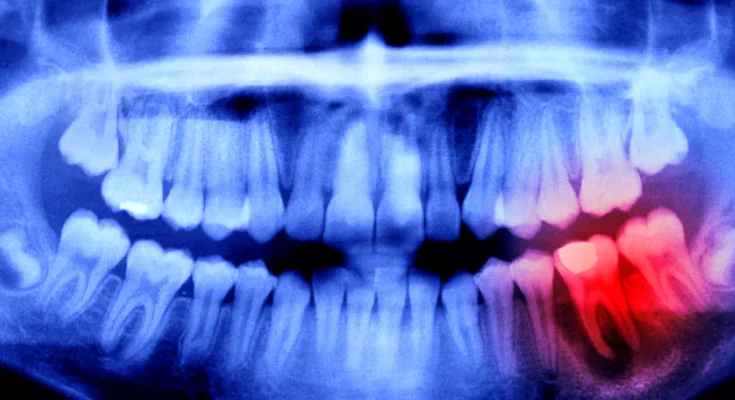Inflamed tooth roots are painful – but root canal treatment is no fun either. But researchers have now discovered the impact of this procedure on inflammation, as well as heart and metabolic health.
For many people, just the thought of root canal treatment causes pain. In fact, despite careful anesthesia, this procedure is one of the most unpleasant appointments at the dentist. According to the World Health Organization (WHO), 3.7 billion people worldwide live with untreated oral diseases, particularly tooth decay.
Now researchers have examined how successful root canal treatment affects the patient’s overall health. The result: The impact goes far beyond dental health.
In a clinical study, King’s College in London examined blood changes after root canal treatment, which is necessary due to apical periodontitis, which is inflammation of the root tip. If left untreated, this infection can cause serious complications.
“Long-lasting root canal infections can cause bacteria to enter the bloodstream, triggering inflammation and increasing blood sugar and fat levels – increasing the risk of serious health problems,” stressed King’s College endodontist Sadia Niazi, lead author of the study. It is important for dentists to recognize and treat such inflammation early to reduce the associated risks – and to protect the affected tooth from death.
Studies examining the effects of root canals
In this study, the relationship between the success of root canal treatment and its benefits for cardiovascular and metabolic health was examined for the first time.
To do this, Niazi’s team looked at the health of 65 patients after root canal treatment for two years. Scientists use nuclear magnetic resonance spectroscopy to analyze molecules in patients’ blood to reveal how the body processes sugar and fat and responds to disease and treatment.
The team found that the success of root canal treatment was associated with the following factors: Blood sugar levels decreased significantly within two years of treatment, which is an important factor in preventing diabetes. The researchers also showed short-term improvements in blood cholesterol and fatty acid levels, which are closely linked to heart health. Relevant inflammatory markers that drive cardiovascular disease and other chronic diseases also decrease over time.
“Our results show that root canal treatment not only improves oral health, but can also help reduce the risk of serious health problems such as diabetes and heart disease,” explained Niazi.
The research team emphasized that further research with a larger group of test subjects is needed to confirm the findings. In the future, targeted monitoring of metabolic markers in the blood, such as glucose, triglycerides, and tryptophan protein, may help assess recovery and risks after dental treatment and protect overall health.
rc


